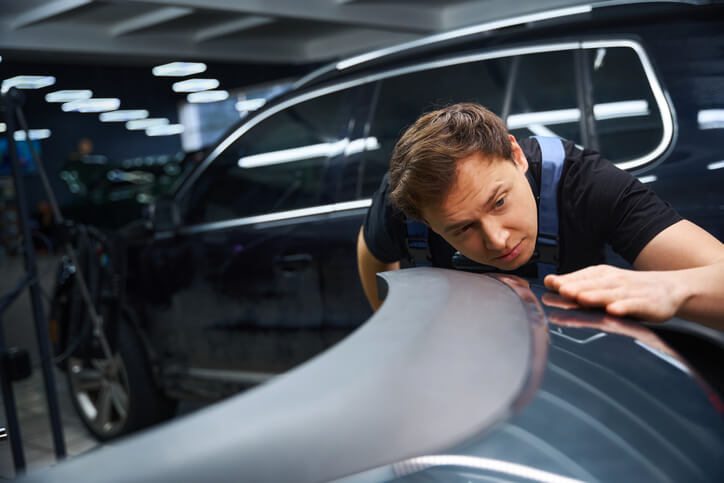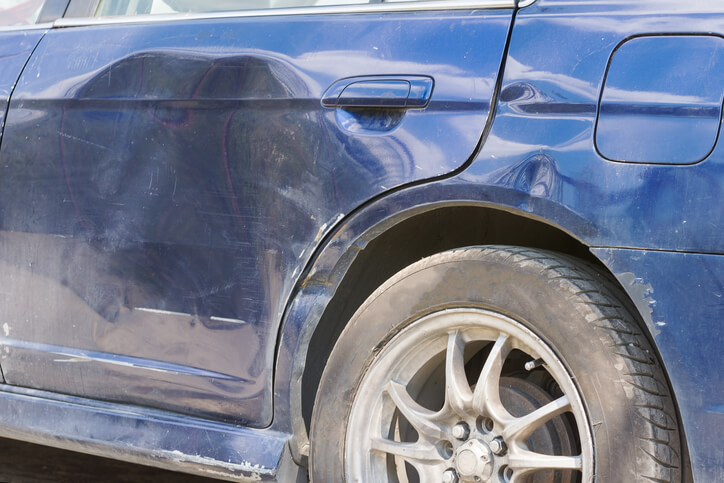Auto Body Training Guide: How Dents Impact Vehicle Performance
If you’re considering auto body training, you already know that dents do more than just affect a car’s appearance. They can impact vehicle performance, safety, and efficiency in ways many drivers don’t realize. Understanding how dents affect a car beyond surface-level damage is crucial for aspiring auto body professionals.
From aerodynamics to structural integrity, let’s explore why fixing dents isn’t just about looks—it’s about keeping cars functioning at their best.
1. Dents Can Disrupt Aerodynamics
A vehicle’s shape is carefully designed to optimize airflow and fuel efficiency. Dents, even small ones, can create uneven surfaces that disrupt this aerodynamic flow. When air doesn’t flow smoothly over the car’s body, it creates drag, which can reduce fuel efficiency.
For drivers, this means more frequent trips to the gas station. For those training in an automotive school, it emphasizes why repairing dents is not just about aesthetics—it’s about restoring the car’s efficiency.
2. Structural Damage Can Weaken a Vehicle’s Integrity
While some dents may seem minor, others can compromise a car’s structural integrity. Deep dents, particularly those on doors, fenders, or the roof, can weaken the material and make the vehicle less resistant to future impacts. This can be especially dangerous in a collision, as weakened areas might not absorb force properly, increasing the risk of injury to passengers.
As part of their auto body training, students learn the importance of assessing structural damage, using tools to reshape and reinforce affected areas, and ensuring that repairs go beyond the cosmetic level.

3. Dents Can Affect Vehicle Safety Features
Modern vehicles have various safety features, many are built into the body panels. Sensors for airbags, parking assistance, and collision detection systems often rely on the car’s exterior panels being in good condition.
Dents in the wrong places can interfere with these features, potentially causing malfunctions that put drivers at risk. Proper dent repair, taught in automotive school, ensures that all safety mechanisms function as intended after an accident or minor impact.

4. Corrosion and Long-Term Damage
Even if a dent seems harmless, it can lead to long-term issues like corrosion. When paint is chipped or metal is exposed, moisture can seep in, leading to rust. Over time, this corrosion weakens the vehicle’s structure and can lead to costly repairs.
Auto body technicians are trained to repair dents properly, ensuring that any exposed areas are sealed and repainted to prevent further damage. This is an essential skill learned in auto body training programs.
5. How Auto Body Training Prepares You for These Repairs
Dents aren’t just about aesthetics; they impact a vehicle’s efficiency, safety, and longevity. This is why trained auto body professionals play a crucial role in the industry.
In a comprehensive auto body course, students learn:
- How to assess different types of dents and determine the best repair methods
- Techniques like paintless dent repair (PDR) and traditional dent removal
- How to restore a vehicle’s aerodynamics and structural integrity
- The importance of safety features and ensuring they work post-repair
If you’re interested in a career where you impact vehicle performance and safety, auto body training at CATI could be the perfect path.
Dents are more than cosmetic flaws—they can affect a vehicle’s performance, safety, and efficiency. By enrolling in our auto body course, you’ll gain the hands-on skills to repair vehicles effectively and keep them roadworthy.
Are you looking for a comprehensive auto body course?
Contact CATI for more information.

